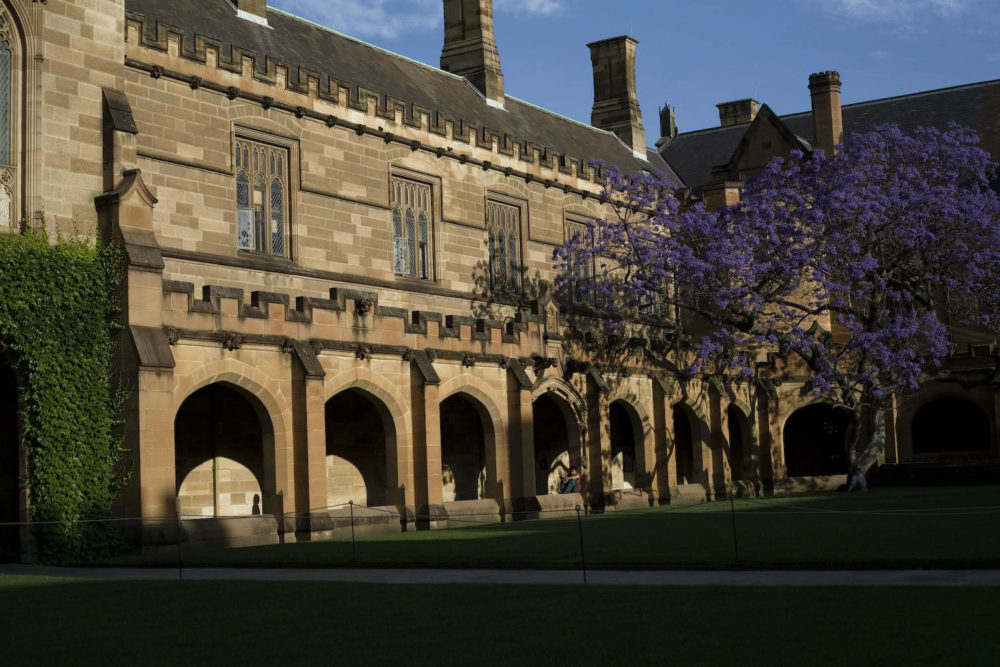By Neena Bhandari
Sydney, 23.09.2011 (Business Standard): Attacks on Indians in Australia, and a subsequent steep drop in Indian student enrollment, have pressed Australian universities to engage more with India. As the dust settles on the furore surrounding attacks on Indian students, which has strained bilateral relations and threatened Australia’s multi-billion-dollar education export sector, Australian universities are going all out to engage with Indian educational institutions.
This isn’t all that surprising considering that the number of offshore applicants from India fell from 18,514 in the 2009-10 financial year to just 6,875 in 2010-11, a drop of 63 per cent. From setting up joint academic and research collaborations to offering scholarships and exchanges, universities are keen to re-build Australia’s reputation as a convivial and safe study destination.
“As countries, we have so much to offer each other when it comes to education and knowledge partnerships. The University of New South Wales (UNSW) like many Australian universities is investing human and capital resources in deepening, strengthening and broadening our engagement with a cross-section of universities in India”, says UNSW’s Pro-Vice-Chancellor (International), Jennie Lang, who is in Delhi with the UNSW Vice-Chancellor Frederick Hilmer, to discuss long-term engagement strategies for partnerships.
UNSW has recently announced a joint Master’s degree in Optometry with the LV Prasad Eye Institute in Hyderabad, and set up a Nehru Chair in the Faculty of Arts and Social Sciences. Earlier, the Australasian Legal Information Institute, a joint facility of UNSW and the University of Technology Sydney (UTS) Faculties of Law, helped develop the Legal Information Institute of India.
“Academic engagement is an important stepping stone towards rebuilding trust and creating a stronger relationship between the two countries,” says the University of Sydney’s Deputy Vice-Chancellor International, Professor John Hearn.
Between 2007 and 2010, the University of Sydney’s International Programme Development Fund has allocated AU$98,788 to initiate research collaboration with Indian institutions in the fields of agriculture, medicine, science, engineering and Information Technology.
Macquarie University in Sydney on the other hand has initiated a number of cooperative partnerships with some of the top Indian business universities including the Indian Institute of Management, Ahmedabad and Calcutta, Xavier Labour Relations Institute (XLRI), NarseeMonjee Institute of Management Studies (NMIMS), and the SP Jain Institute of Management and Research.
Karthik Kesavan, who hails from Chennai, arrived at Melbourne’s LaTrobe University when the students’ attacks issue was at its peak two years ago but has experienced little of the troubles that were reported at the time. “I find generally people are warm and friendly. I have not experienced any of kind racism. Although, when I speak to friends back home, a vast majority still feel Australia is not a safe place”, says Kesavan, who is in the final semester of a Bachelor’s degree in Animal and Veterinary Bio-sciences.
He has been working as a Livestock supervisor in a Poultry Farm to pay for the nearly AU$ 60,000 three-year course fee and he would like to stay on in Australia. “There are plenty of jobs available in my field of study here, but tougher immigration rules pose a challenge”, adds Kesavan. Changes to the Australian skilled migration programme, tightening of student visa rules and financial stability requirements, closure of dodgy private colleges and a surging Australian dollar have all contributed to low enrolments from India.
There are 61,549 overseas Indian students enrolled in Australian educational institutions as at year-to-date July 2011 out of a total of 487,704 international students from nearly 200 countries. Education is Australia’s third largest export after iron ore and coal and the largest services export worth AU$ 18.3 billion.
Still, a range of initiatives are being taken to foster higher education links between the two countries. For example, the Australia-India University Shadowing Pilot, funded by the Australian Department of Education, Employment and Workplace Relations (DEEWR), will provide full support for up to five Australian and up to five Indian university executives in a particular administrative or academic discipline to undertake a capacity building shadowing exchange in 2012.
In July, the India Australia-Vice Chancellors’ and Senior University Executives’ Workshop held in Delhi agreed to promote greater institutional collaboration, credit transfer, student and staff mobility, and joint research.
Flinders University has exchange and research links amongst others with Madras Christian College, Manipal University, National Institute of Mental Health and Neurosciences, Bangalore, and Indian Institute of Horticulture, Bangalore. The University of Adelaide has research partnerships with Indian institutions on wheat and rice breeding, weed management in rice, and evaluation of genetically modified cereal crops.
Top scientists have benefited from the Australia-India Strategic Research Fund (AISFR), a joint initiative of the Australian and Indian governments. Until June 2011, more than 90 joint research projects and workshops, valued at over AU$30 million, have been awarded AISFR grants.
The deepening engagement with Indian researchers is in part facilitated by the Australia India Institute (AII) at the University of Melbourne, with founding partners UNSW and LaTrobe University.
“One initiative has been the introduction of a Masters level subject in International Relations that is jointly taught by Universities of Melbourne, Delhi and Birmingham. The subject is taught in Delhi to Masters students from all three universities in intensive mode,” says Professor Sue Elliott, Deputy Vice-Chancellor (Global Engagement), University of Melbourne.
Starting in 2012, 10 top scholars from India will be awarded AUD$90,000 each to do a PhD at one of Victoria’s nine universities under the new Victoria India Doctoral Scholarships Program launched by the State Government of Victoria and the AII. The State Government has also sponsored a Chair in Contemporary Indian Studies at the University of Melbourne for three years.
© Copyright Neena Bhandari. All rights reserved. Republication, copying or using information from neenabhandari.com content is expressly prohibited without the permission of the writer and the media outlet syndicating or publishing the article.

